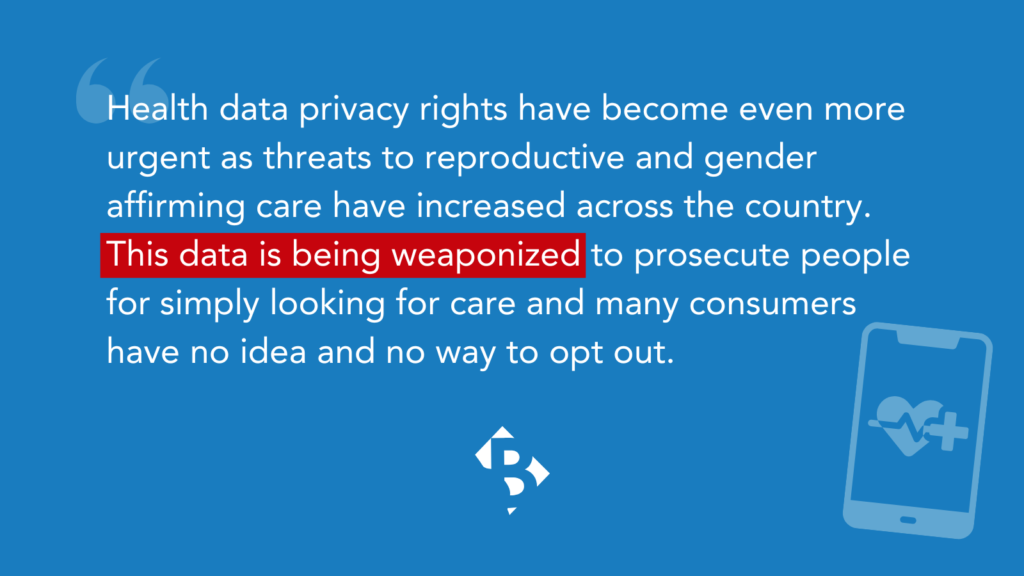In the age of HIPPA and putting protections on health data privacy, it turns out that our private data isn’t as protected as we might think. When it comes to apps that collect sensitive health information, the protections we might expect don’t exist.
Companies that collect data on mental health diagnoses, reproductive care, and genetic testing can legally sell users’ private data to tech companies, insurance providers, and even government agencies.
I applaud D.C. Attorney General Schwalb on his efforts to strengthen privacy rights for District residents, including the Consumer Health Information Privacy Protection Act of 2024, or CHIPPA, which will expand data privacy provisions to apps that collect and sell our private health data.
Health data privacy rights have become even more urgent as threats to reproductive and gender affirming care have increased across the country. This data is being weaponized to prosecute people for simply looking for care and many consumers have no idea and no way to opt out.
As a woman, and as the mother of two girls who will become teenagers and young women before I can blink an eye – I am terrified, to be honest, by the possibility that the most personal of information about me and my body could become fodder for marketers, insurance companies, and even the government. I am terrified for the tens of thousands of others in the District who face the same invasion of privacy – many of whom will not even know it is happening until it is too late.
The bill will require apps to inform consumers of how health data will be collected, shared, and sold, and provide users an opportunity to opt out of the sale of their data. It will also require these companies to limit the amount of information that they collect and provide an option for consumers to request deletion of all collected data. Violations of this law will be considered an unfair and deceptive trade practice enforceable by the Office of the Attorney General and consumers will have a private right of action to seek additional legal action against violators.
Consumers turn to these apps because they offer immediate and low-barrier care and the chance to take charge of their own health. They should not unknowingly give up privacy of their own health information as part of the bargain.
